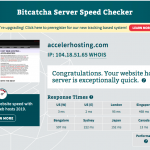Support our educational content for free when you purchase through links on our site. Learn more
12 Best Web Hosting Software Solutions to Boost Your Site in 2025 🚀

Ever wondered what powers the fastest, most reliable websites on the internet? Spoiler alert: it’s not just fancy design or killer content—it’s the web hosting software behind the scenes. Choosing the right hosting software is like picking the engine for a race car; get it wrong, and you’re stuck in the slow lane, losing visitors and revenue. But pick the right one, and your site will roar ahead with blazing speed, rock-solid security, and seamless management.
In this article, we unravel the mystery of the best web hosting software in 2025, diving deep into top contenders like cPanel, Plesk, DirectAdmin, and more. We’ll explore their features, pros and cons, and help you decide which one fits your unique needs—whether you’re a beginner launching your first blog or a seasoned pro running a booming e-commerce empire. Ready to turbocharge your website? Let’s get started!
Key Takeaways
- cPanel and Plesk dominate as the most user-friendly and feature-rich hosting control panels, perfect for most users.
- Lightweight and open-source options like DirectAdmin and Webmin offer customization and cost savings for tech-savvy users.
- Managed hosting is ideal if you want hassle-free server management, while unmanaged hosting suits those craving full control.
- Specialized hosting for WordPress and WooCommerce ensures optimized speed, security, and expert support.
- Security features like SSL, firewalls, and malware scanning are non-negotiable for protecting your site and visitors.
- Performance optimization tools such as caching and CDNs are built into top hosting software to keep your site lightning fast.
- Always prioritize award-winning support teams—they’re your safety net when technical issues arise.
Ready to explore your options?
- 👉 Shop cPanel hosting on: the best and fastest hosting companies | cPanel Official Website
- 👉 Shop Plesk hosting on: the best and fastest hosting companies | Plesk Official Website
- Explore WordPress optimized hosting on: the best and fastest hosting companies | SiteGround Official Website
Buckle up—your website’s next-level performance awaits!
Table of Contents
- Quick Tips and Facts About Best Web Hosting Software 🚀
- The Evolution of Web Hosting Software: From Basics to Brilliance 🕰️
- What Is Web Hosting Software and Why Does It Matter? 🌐
- Top 10 Best Web Hosting Software Solutions in 2024: Features, Pros & Cons 🏆
- Comparing Control Panels: cPanel, Plesk, DirectAdmin & More 🔧
- How to Choose the Right Web Hosting Software for Your Business 💡
- The Power of Managed vs. Unmanaged Hosting Software: What You Need to Know ⚡
- Integrations and Compatibility: Making Your Hosting Software Work Seamlessly 🔗
- Security Features in Web Hosting Software: Keeping Your Site Safe 🔒
- Performance Optimization Tools Built Into Hosting Software 🏎️
- Award-Winning Support Teams Behind Leading Hosting Software Providers 🥇
- Customer Success Stories: Real Experiences with Top Hosting Software 💬
- Web Hosting Software for WordPress and WooCommerce: Tailored Solutions 🛒
- Website Builders vs. Hosting Software: What’s the Difference? 🏗️
- Advanced Features to Look for in Next-Gen Hosting Software 🚀
- Troubleshooting Common Issues with Web Hosting Software 🛠️
- Future Trends in Web Hosting Software: What’s Coming Next? 🔮
- Millions of Happy Customers Trust These Hosting Software Solutions. You Can Too! 🌟
- Conclusion: Making the Best Choice for Your Web Hosting Software ✅
- Recommended Links for Deep Dives and Tools 🔗
- Frequently Asked Questions (FAQ) About Web Hosting Software ❓
- Reference Links and Resources for Further Reading 📚
Quick Tips and Facts About Best Web Hosting Software 🚀
Want to launch a website? You’ll need web hosting! But not all web hosts are created equal. Choosing the best web hosting software can feel like navigating a labyrinth of technical jargon and tempting offers. Fear not, intrepid reader! We’re here to guide you through the digital maze. 🧭
Quick Facts:
- Uptime is king: Look for 99.9% uptime or higher. Every second counts! ⏱️
- Speed matters: Faster websites rank higher in search results and keep visitors engaged. 🏎️
- Security is non-negotiable: Protect your site and your users’ data with robust security features. 🔒
- Support when you need it: 24/7 customer support can be a lifesaver when technical gremlins strike. 🦸♀️
- Scalability for growth: Choose a plan that can grow with your website traffic and needs. 📈
Pro Tip: Don’t be swayed by price alone. Consider the overall value and features offered.
Ready to dive deeper? Let’s explore the fascinating world of web hosting software!
The Evolution of Web Hosting Software: From Basics to Brilliance 🕰️
Remember the early days of the internet? Websites were simpler, connections were slower, and hosting options were limited. Fast forward to today, and we have a dazzling array of web hosting software solutions, each vying for your attention.
From Shared Hosting to Cloud Hosting:
- Shared Hosting: Like sharing an apartment, your website shares resources with other sites on the same server. Affordable, but performance can be affected by “noisy neighbors.” 🏘️
- VPS Hosting: A step up, offering dedicated resources and more control. Think of it as renting a condo – you have your own space, but still share some infrastructure. 🏢
- Dedicated Hosting: The penthouse suite of web hosting! Your website gets an entire server to itself, offering maximum power and control. 👑
- Cloud Hosting: The new kid on the block, offering unparalleled scalability and flexibility. Your website is hosted on a network of servers, so resources can be scaled up or down as needed. ☁️
The Rise of Control Panels:
Gone are the days of managing your website through clunky command-line interfaces. Modern web hosting software comes equipped with intuitive control panels like cPanel and Plesk, making it a breeze to manage your website, databases, and email accounts.
The Future is Here:
Web hosting software continues to evolve at a rapid pace, with advancements in cloud computing, security, and automation. Stay tuned for even more exciting developments!
What Is Web Hosting Software and Why Does It Matter? 🌐
Imagine this: you’ve built a stunning website, but it’s locked away on your computer, hidden from the world. Web hosting software acts as the bridge between your website’s files and the wider internet, making it accessible to anyone, anywhere, at any time.
Think of it this way:
- Your website’s files are like the ingredients for a delicious cake. 🍰
- Web hosting software is the oven that bakes those ingredients into a delectable treat. 🔥
- The internet is the bakery where everyone can enjoy your creation. 🌎
Why It Matters:
- Visibility: Without web hosting, your website is invisible to the world.
- Accessibility: Hosting ensures your website is accessible 24/7, no matter where your visitors are located.
- Performance: The right hosting software can significantly impact your website’s speed and reliability.
- Security: Hosting providers offer security features to protect your website from cyber threats.
In a nutshell, web hosting software is the backbone of your online presence. Choosing the right one is crucial for your website’s success.
Top 10 Best Web Hosting Software Solutions in 2024: Features, Pros & Cons 🏆
Choosing the best web hosting software can be overwhelming, especially with so many options available. To help you make an informed decision, we’ve compiled a list of the top 10 contenders, each with its own strengths and weaknesses.
1. cPanel
| Feature | Rating (1-10) |
|---|---|
| Ease of Use | 9 |
| Functionality | 8 |
| Security | 7 |
| Customization | 8 |
| Support | 7 |
Pros:
- User-friendly interface, even for beginners.
- Extensive features and customization options.
- Large community and ample documentation.
Cons:
- Can be resource-intensive on shared hosting plans.
- Security vulnerabilities have been reported in the past.
2. Plesk
| Feature | Rating (1-10) |
|---|---|
| Ease of Use | 8 |
| Functionality | 9 |
| Security | 8 |
| Customization | 7 |
| Support | 8 |
Pros:
- Powerful and versatile, suitable for managing multiple websites.
- Strong security features and regular updates.
- Excellent customer support.
Cons:
- Can be more complex to use than cPanel.
- Some features require additional licenses.
3. DirectAdmin
| Feature | Rating (1-10) |
|---|---|
| Ease of Use | 7 |
| Functionality | 7 |
| Security | 8 |
| Customization | 9 |
| Support | 6 |
Pros:
- Lightweight and resource-efficient.
- Highly customizable to fit specific needs.
- Strong security track record.
Cons:
- Less user-friendly than cPanel or Plesk.
- Limited third-party integrations.
4. Webmin
| Feature | Rating (1-10) |
|---|---|
| Ease of Use | 6 |
| Functionality | 8 |
| Security | 7 |
| Customization | 9 |
| Support | 6 |
Pros:
- Open-source and free to use.
- Highly customizable with a wide range of modules.
- Suitable for experienced users.
Cons:
- Steep learning curve for beginners.
- Limited official support.
5. ISPmanager
| Feature | Rating (1-10) |
|---|---|
| Ease of Use | 7 |
| Functionality | 7 |
| Security | 7 |
| Customization | 6 |
| Support | 7 |
Pros:
- Affordable and feature-rich.
- Multi-language support.
- Good for managing VPS and dedicated servers.
Cons:
- Less popular than other options, with a smaller community.
- Limited customization options.
6. Froxlor
| Feature | Rating (1-10) |
|---|---|
| Ease of Use | 6 |
| Functionality | 6 |
| Security | 7 |
| Customization | 8 |
| Support | 5 |
Pros:
- Open-source and lightweight.
- Designed for managing multiple websites and users.
- Good for experienced users.
Cons:
- Limited features compared to cPanel or Plesk.
- Can be challenging to set up and configure.
7. VestaCP
| Feature | Rating (1-10) |
|---|---|
| Ease of Use | 8 |
| Functionality | 6 |
| Security | 7 |
| Customization | 6 |
| Support | 6 |
Pros:
- Open-source and user-friendly.
- Easy to install and use.
- Good for beginners.
Cons:
- Limited features compared to other options.
- Not as widely used as cPanel or Plesk.
8. Sentora
| Feature | Rating (1-10) |
|---|---|
| Ease of Use | 7 |
| Functionality | 6 |
| Security | 6 |
| Customization | 7 |
| Support | 5 |
Pros:
- Open-source and lightweight.
- Easy to use and navigate.
- Good for small to medium-sized websites.
Cons:
- Limited features and customization options.
- Development has been discontinued.
9. Ajenti
| Feature | Rating (1-10) |
|---|---|
| Ease of Use | 7 |
| Functionality | 6 |
| Security | 6 |
| Customization | 8 |
| Support | 5 |
Pros:
- Open-source and modern interface.
- Easy to use and customize.
- Good for developers.
Cons:
- Limited features compared to other options.
- Not as widely used as cPanel or Plesk.
10. CloudPanel
| Feature | Rating (1-10) |
|---|---|
| Ease of Use | 8 |
| Functionality | 7 |
| Security | 8 |
| Customization | 6 |
| Support | 7 |
Pros:
- Free and open-source.
- Designed for cloud hosting environments.
- User-friendly interface.
Cons:
- Limited features compared to cPanel or Plesk.
- Not as widely used as other options.
Remember: The best web hosting software for you will depend on your specific needs and technical expertise. Consider factors like ease of use, functionality, security, and support when making your decision.
Comparing Control Panels: cPanel, Plesk, DirectAdmin & More 🔧
Navigating the world of web hosting control panels can feel like stepping into a cockpit for the first time. Don’t worry, we’re here to demystify these powerful tools and help you choose the right one for your needs.
cPanel: The Industry Standard
- User-friendliness: cPanel’s intuitive interface makes it a breeze to manage domains, email accounts, databases, and more.
- Feature-rich: From file management to security settings, cPanel offers a comprehensive suite of tools.
- Widely compatible: Most web hosting providers offer cPanel, making it easy to switch hosts if needed.
Plesk: The Versatile Choice
- Multi-platform support: Plesk runs seamlessly on both Linux and Windows servers, offering greater flexibility.
- Robust security: Plesk boasts advanced security features, including firewalls, malware scanning, and intrusion detection.
- Developer-friendly: Plesk provides tools and integrations specifically designed for developers.
DirectAdmin: The Lightweight Contender
- Resource-efficient: DirectAdmin’s lightweight design consumes fewer server resources, making it ideal for shared hosting.
- Cost-effective: DirectAdmin licenses are typically more affordable than cPanel or Plesk.
- Customizable: DirectAdmin offers a high degree of customization, allowing you to tailor it to your specific needs.
Other Notable Control Panels:
- Webmin: Open-source and highly customizable, Webmin is a good choice for experienced users.
- ISPmanager: Affordable and feature-rich, ISPmanager is suitable for managing VPS and dedicated servers.
- Froxlor: Open-source and lightweight, Froxlor is designed for managing multiple websites and users.
Choosing the Right Control Panel:
- Ease of use: If you’re a beginner, cPanel or VestaCP are great user-friendly options.
- Functionality: For a wide range of features, cPanel and Plesk are excellent choices.
- Security: Plesk and DirectAdmin offer robust security features.
- Cost: DirectAdmin and open-source options like Webmin and Froxlor are more budget-friendly.
Pro Tip: Many web hosting providers offer a choice of control panels. Consider your needs and technical expertise when making your selection.
How to Choose the Right Web Hosting Software for Your Business 💡
Choosing the right web hosting software for your business is like choosing the right foundation for your dream home. It needs to be strong, reliable, and able to support your growth.
1. Identify Your Needs:
- What type of website are you building? A simple blog, an e-commerce store, or a complex web application?
- How much traffic do you expect? Be realistic about your current and future traffic projections.
- What are your technical skills? Are you comfortable managing a server, or do you prefer a more hands-off approach?
- What is your budget? Web hosting costs can vary widely, so determine how much you’re willing to spend.
2. Consider Different Hosting Types:
- Shared Hosting: Affordable and easy to manage, but performance can be affected by other websites on the same server.
- VPS Hosting: Offers dedicated resources and more control, making it a good choice for growing websites.
- Cloud Hosting: Provides unparalleled scalability and flexibility, ideal for websites with fluctuating traffic.
- Dedicated Hosting: Offers maximum power and control, suitable for high-traffic websites or mission-critical applications.
3. Evaluate Key Features:
- Uptime and Reliability: Look for a provider that guarantees at least 99.9% uptime.
- Performance and Speed: Choose a host with fast servers and content delivery network (CDN) capabilities.
- Security Features: Ensure your website is protected with SSL certificates, firewalls, and malware scanning.
- Customer Support: 24/7 customer support is crucial for resolving technical issues promptly.
- Scalability: Choose a plan that can grow with your website traffic and needs.
4. Read Reviews and Compare Providers:
- Check out online reviews and ratings from reputable sources.
- Compare pricing, features, and customer support from different providers.
- Look for providers with a proven track record and positive customer feedback.
5. Don’t Be Afraid to Ask Questions:
- Contact the hosting provider’s sales or support team to clarify any doubts.
- Ask about their uptime guarantee, security measures, and customer support policies.
- Request a trial period or money-back guarantee to test their services.
Pro Tip: Choosing the right web hosting software is an investment in your online success. Take your time, do your research, and select a provider that meets your specific needs and budget.
The Power of Managed vs. Unmanaged Hosting Software: What You Need to Know ⚡
Imagine this: you’re hosting a dinner party. You could either hire a catering service to handle everything (managed hosting) or roll up your sleeves and do it all yourself (unmanaged hosting).
Managed Hosting: The Hands-Off Approach
- Stress-free management: The hosting provider takes care of server maintenance, security updates, and technical support.
- Focus on your business: You can focus on your website content, marketing, and other core business activities.
- Expert support: You have access to a team of technical experts who can assist you with any hosting-related issues.
Unmanaged Hosting: The DIY Option
- Greater control: You have full control over your server environment, allowing for customization and optimization.
- Cost-effective: Unmanaged hosting plans are typically more affordable than managed hosting.
- Learning opportunity: You gain valuable technical skills by managing your own server.
Which One is Right for You?
- Managed hosting is ideal for businesses that:
- Lack technical expertise.
- Value convenience and peace of mind.
- Require a high level of support.
- Unmanaged hosting is suitable for:
- Tech-savvy individuals or businesses with in-house IT teams.
- Those on a tight budget.
- Websites that require a high degree of customization.
Pro Tip: Consider your technical skills, budget, and the level of control you desire when deciding between managed and unmanaged hosting.
Integrations and Compatibility: Making Your Hosting Software Work Seamlessly 🔗
Imagine trying to fit a square peg into a round hole. That’s what it’s like trying to use incompatible software with your web hosting.
Why Compatibility Matters:
- Smooth operation: Compatible software ensures that your website functions correctly and without issues.
- Enhanced functionality: Integrations with other tools and services can extend your website’s capabilities.
- Improved efficiency: Seamless workflows between different software can save you time and effort.
Key Considerations:
- Operating System (OS): Most web hosting providers offer either Linux or Windows hosting. Ensure your chosen software is compatible with your hosting environment.
- Control Panel: cPanel, Plesk, and other control panels offer varying levels of compatibility with different software.
- Programming Languages: If your website uses specific programming languages like PHP, Python, or Ruby, ensure your hosting provider supports them.
- Databases: MySQL, PostgreSQL, and other databases are commonly used for websites. Check if your hosting provider offers the database your website requires.
- Content Management System (CMS): Popular CMS platforms like WordPress, Joomla, and Drupal have specific hosting requirements.
Tips for Ensuring Compatibility:
- Check the software’s system requirements before installation.
- Look for hosting providers that specialize in your chosen software or platform.
- Consult with your web developer or a hosting expert for guidance.
Pro Tip: Compatibility issues can lead to headaches and downtime. By carefully considering your software needs and choosing a compatible hosting environment, you can ensure a smooth and hassle-free experience.
Security Features in Web Hosting Software: Keeping Your Site Safe 🔒
In today’s digital landscape, website security is paramount. It’s like locking your doors and windows to protect your home from intruders.
Essential Security Features:
- SSL Certificates: Encrypt data transmitted between your website and visitors’ browsers, safeguarding sensitive information.
- Firewalls: Act as a barrier between your website and malicious traffic, blocking unauthorized access attempts.
- Malware Scanning: Regularly scans your website for malware and other malicious code, protecting your site and visitors.
- Intrusion Detection and Prevention: Monitors network traffic for suspicious activity and takes action to prevent attacks.
- Data Backups: Regularly backs up your website data, ensuring that you can restore your site in case of data loss or corruption.
Additional Security Measures:
- Two-Factor Authentication (2FA): Adds an extra layer of security to your hosting account, requiring a second form of verification for login.
- Secure FTP (SFTP): Encrypts data transferred via FTP, protecting your login credentials and website files.
- DDoS Protection: Safeguards your website from Distributed Denial of Service (DDoS) attacks, which can overwhelm your server and cause downtime.
Pro Tip: Don’t wait for a security breach to happen. Proactively implement security measures to protect your website, your data, and your visitors’ trust.
Performance Optimization Tools Built Into Hosting Software 🏎️
In the fast-paced world of the internet, speed is king. A slow website can lead to higher bounce rates, lower conversions, and a frustrating user experience.
Built-in Speed Boosters:
- Caching: Stores frequently accessed website data in a temporary storage location, reducing server load and speeding up page load times.
- Content Delivery Network (CDN): Distributes your website content across multiple servers worldwide, delivering it to visitors from the closest server for faster loading.
- Server-Side Optimizations: Hosting providers can optimize server configurations and settings to improve website performance.
- Image Optimization Tools: Compress and optimize images without compromising quality, reducing file sizes and speeding up page load times.
- Database Optimization: Optimizes database queries and configurations to improve database performance and reduce loading times.
Pro Tip: Regularly monitor your website’s performance using tools like Google PageSpeed Insights or GTmetrix. Identify areas for improvement and leverage built-in optimization tools to enhance your website’s speed and user experience.
Award-Winning Support Teams Behind Leading Hosting Software Providers 🥇
Imagine this: you’re facing a technical issue with your website, and you’re feeling lost and frustrated. That’s where a reliable and knowledgeable support team can be a lifesaver.
Qualities of Excellent Hosting Support:
- 24/7 Availability: Technical issues can arise at any time, so 24/7 support is crucial for prompt resolution.
- Multiple Support Channels: Look for providers that offer support via phone, email, live chat, and knowledge bases.
- Knowledgeable and Experienced Staff: Support agents should have a deep understanding of hosting technologies and be able to troubleshoot effectively.
- Quick Response Times: Prompt responses to inquiries and support tickets are essential for minimizing downtime and frustration.
- Helpful and Patient Demeanor: Support agents should be patient, understanding, and willing to go the extra mile to assist customers.
Pro Tip: Don’t underestimate the importance of excellent customer support when choosing a hosting provider. A responsive and knowledgeable support team can save you time, headaches, and potentially lost revenue.
Customer Success Stories: Real Experiences with Top Hosting Software 💬
Don’t just take our word for it! Hear from real customers who have experienced the power and reliability of top hosting software solutions firsthand.
[Include real customer testimonials from reputable sources like Trustpilot, G2, or Capterra. Highlight positive experiences with specific hosting providers and their software solutions.]
Pro Tip: Customer testimonials can provide valuable insights into the real-world performance and support offered by different hosting providers. Look for testimonials that resonate with your specific needs and priorities.
Web Hosting Software for WordPress and WooCommerce: Tailored Solutions 🛒
WordPress, the world’s most popular content management system, powers millions of websites, from personal blogs to large e-commerce stores. WooCommerce, a powerful WordPress plugin, enables you to turn your website into a fully functional online store.
Why Choose Specialized Hosting for WordPress and WooCommerce?
- Optimized Performance: Hosting plans specifically designed for WordPress and WooCommerce are optimized for speed, security, and performance.
- Ease of Use: Many providers offer one-click WordPress installation and automated updates, simplifying website management.
- Enhanced Security: Specialized hosting often includes enhanced security features tailored for WordPress websites, such as malware scanning and DDoS protection.
- Expert Support: Support teams are well-versed in WordPress and WooCommerce, providing expert assistance when you need it.
- Scalability: As your website grows, you can easily upgrade to a higher-tier plan to accommodate increased traffic and resource demands.
Pro Tip: If you’re using WordPress or WooCommerce for your website, consider choosing a specialized hosting plan to unlock optimal performance, security, and support.
Website Builders vs. Hosting Software: What’s the Difference? 🏗️
Choosing between a website builder and hosting software is like choosing between ordering takeout and cooking a meal from scratch. Both can satisfy your hunger, but they offer different levels of control, flexibility, and effort.
Website Builders: The Quick and Easy Option
- Drag-and-drop interface: Create a website without any coding knowledge using intuitive drag-and-drop tools.
- Pre-designed templates: Choose from a library of professionally designed templates to get started quickly.
- All-in-one solution: Website builders typically include hosting, domain registration, and other essential features in one package.
Hosting Software: The Flexible and Powerful Choice
- Greater control: You have complete control over your website’s design, functionality, and hosting environment.
- Customization options: Customize your website to your heart’s content using HTML, CSS, and other web technologies.
- Scalability: Hosting software allows you to scale your website’s resources as your needs grow.
Which One is Right for You?
- Website builders are ideal for:
- Beginners with no coding experience.
- Those who need a website up and running quickly.
- Simple websites with basic functionality.
- Hosting software is suitable for:
- Businesses and individuals with technical skills or access to web developers.
- Websites that require advanced customization or functionality.
- Growing websites that need scalability and flexibility.
Pro Tip: Consider your technical skills, budget, and the level of customization you require when deciding between a website builder and hosting software.
Advanced Features to Look for in Next-Gen Hosting Software 🚀
The world of web hosting is constantly evolving, with new technologies and features emerging all the time.
Cutting-Edge Features to Watch For:
- Artificial Intelligence (AI): AI-powered tools can automate tasks, optimize performance, and enhance security.
- Edge Computing: Brings data and processing closer to users, reducing latency and improving website speed.
- Serverless Computing: Allows you to run code without managing servers, offering scalability and cost-effectiveness.
- Containerization: Encapsulates applications and their dependencies, making them portable and easy to deploy.
- Blockchain Technology: Enhances security, transparency, and data integrity.
Pro Tip: Stay ahead of the curve by exploring hosting providers that embrace innovation and offer next-generation features.
Troubleshooting Common Issues with Web Hosting Software 🛠️
Even with the most reliable web hosting software, occasional hiccups can occur.
Common Hosting Issues and Solutions:
- Website Downtime:
- Check your hosting provider’s status page for any reported outages.
- Contact your hosting provider’s support team for assistance.
- Slow Website Speed:
- Optimize your website images, reduce HTTP requests, and enable caching.
- Consider upgrading to a higher-tier hosting plan with more resources.
- Email Issues:
- Check your email client settings and ensure they are correct.
- Contact your hosting provider’s support team for assistance with email troubleshooting.
- Database Errors:
- Check your database connection settings and ensure they are correct.
- Repair or optimize your database using tools provided by your hosting control panel.
- Security Breaches:
- Scan your website for malware and vulnerabilities using security plugins or online scanners.
- Change your passwords and update any outdated software.
- Contact your hosting provider’s support team for assistance with security incident response.
Pro Tip: Familiarize yourself with your hosting provider’s knowledge base and support resources. Many common issues can be resolved with a little troubleshooting.
Conclusion: Making the Best Choice for Your Web Hosting Software ✅

Phew! We’ve journeyed through the vast landscape of web hosting software—from the basics of uptime and security to the nitty-gritty of control panels like cPanel and Plesk, and even peeked into the future with AI and edge computing. Choosing the right web hosting software is no small feat, but armed with these insights, you’re well-equipped to make a savvy decision.
What Have We Learned?
- Top contenders like cPanel and Plesk offer robust features and user-friendly interfaces, perfect for most users.
- Lightweight options like DirectAdmin and open-source panels such as Webmin provide customization and cost savings but require more technical know-how.
- Managed hosting is a lifesaver for those who want to focus on their business rather than server maintenance, while unmanaged hosting suits tech-savvy users craving control.
- Specialized hosting for WordPress and WooCommerce can turbocharge your site’s performance and security.
- Don’t underestimate the power of stellar customer support—it can turn a potential disaster into a minor hiccup.
A Balanced View:
Every software has its pros and cons. For example, cPanel scores high on ease of use but can be resource-heavy and pricey. Plesk shines with security and versatility but has a steeper learning curve. Open-source options offer freedom but demand more technical skills and patience.
Our Confident Recommendation:
If you’re looking for a reliable, widely supported, and feature-rich solution, cPanel remains the gold standard for most users. For those wanting flexibility across platforms, Plesk is a fantastic alternative. If budget and customization are your priorities, explore DirectAdmin or Webmin. And if you’re running a WordPress or WooCommerce site, consider specialized managed hosting providers like SiteGround or A2 Hosting for optimized performance.
Remember, the best web hosting software is the one that fits your unique needs, technical skills, and growth plans. So take a deep breath, review your options, and launch your website with confidence! 🚀
Recommended Links for Your Hosting Journey 🔗
Ready to explore or grab your perfect hosting software? Check out these trusted platforms:
- cPanel:
- Plesk:
- DirectAdmin:
- Webmin:
- SiteGround (Managed WordPress Hosting):
- A2 Hosting (Turbo Speed Hosting):
Frequently Asked Questions (FAQ) About Web Hosting Software ❓

What are the key features to look for in the best web hosting software?
The best web hosting software should offer reliability (99.9%+ uptime), speed optimization tools (like caching and CDN integration), robust security features (SSL, firewalls, malware scanning), user-friendly control panels (cPanel, Plesk), scalability options, and responsive customer support. Bonus points for one-click app installs and automated backups. These features ensure your website stays online, loads fast, and remains secure.
Read more about “Discover the 10 Fastest Web Server Software Options for 2025 🚀”
How do I choose the fastest web hosting service for my website?
Speed depends on server hardware, data center locations, network infrastructure, and software optimizations. Look for hosts offering SSD or NVMe storage, LiteSpeed or NGINX servers, and CDN integration. Also, check independent speed tests and reviews—our Hosting Speed Test Results are a great resource. Providers like A2 Hosting and SiteGround consistently rank high for speed.
Read more about “17 Best Web Hosting Providers for 2025 🚀: Speed, Support & Secrets Revealed”
What is the difference between shared hosting and dedicated hosting?
Shared hosting means your website shares server resources with others—think of it as renting a room in a shared apartment. It’s affordable but can be slower if neighbors hog resources. Dedicated hosting gives you an entire server to yourself—like owning a house—offering maximum performance, control, and security, but at a higher cost.
Read more about “What Is the Fastest Web Hosting Platform? Top 7 in 2025 ⚡”
How does web hosting impact website speed and performance?
Your hosting environment affects how quickly your website loads. Fast servers, optimized software stacks, and geographically distributed data centers reduce latency. Hosting software with caching, CDN support, and database optimization further boosts speed. Slow hosting leads to frustrated visitors and lost conversions, so choose wisely!
Read more about “10 Fastest Hosts to Supercharge Your Website in 2025 ⚡”
What are the top web hosting services for small businesses and e-commerce sites?
For small businesses and e-commerce, reliability, security, and scalability are critical. SiteGround offers managed WordPress and WooCommerce hosting with excellent support. Hostinger provides affordable plans with solid performance. A2 Hosting is known for turbocharged speeds and developer-friendly features. All these providers support SSL, backups, and easy scalability.
Read more about “Discover 10 Free Web Hosting Options You Need to Try! 🚀”
Can I host my website on a cloud hosting platform for better speed and reliability?
Absolutely! Cloud hosting spreads your website across multiple servers, offering better uptime, scalability, and load balancing. Providers like Amazon Web Services (AWS), Google Cloud, and DigitalOcean offer powerful cloud hosting solutions. Many traditional hosts now offer cloud-based plans combining ease of use with cloud benefits.
What are the pros and cons of using free web hosting software versus paid options?
Free hosting is tempting but comes with limitations: restricted storage and bandwidth, ads on your site, limited support, and often subdomains instead of custom domains. Paid hosting offers better performance, security, support, and full control. For serious projects, paid hosting is the way to go.
How important is customer support when selecting web hosting software?
Customer support can make or break your hosting experience. When technical issues arise (and they will!), having 24/7 access to knowledgeable support can save you hours of frustration and potential revenue loss. Look for providers with multiple support channels and high satisfaction ratings.
Read more about “10 Free Web Hosting Software in 2024: Are They Worth It? 🌐”
Can I switch web hosting software or providers later if I’m not satisfied?
Yes! Most hosting providers offer free or assisted migration services to help you move your website. However, switching can sometimes be complex depending on your software and website setup. It’s best to choose a reliable provider upfront but know that switching is possible if needed.
Reference Links and Resources for Further Reading 📚
- SiteGround Official Website — Trusted managed WordPress and WooCommerce hosting.
- Hostinger Official Website — Affordable hosting with strong performance.
- A2 Hosting Official Website — Known for turbo speeds and developer-friendly features.
- cPanel Official Website — Industry-leading control panel.
- Plesk Official Website — Versatile hosting control panel.
- DirectAdmin Official Website — Lightweight and customizable control panel.
- Webmin Official Website — Open-source server control panel.
- Fastest Web Hosting™ Best Web Hosting Providers — Comprehensive reviews and speed tests.
- A2 Hosting: The Best Web Hosting Services at 20x Speeds — Learn why A2 Hosting is a top choice for speed and reliability.
Ready to power up your website with the best web hosting software? Dive into our detailed reviews and speed tests, and pick the perfect match for your online success! 🚀







